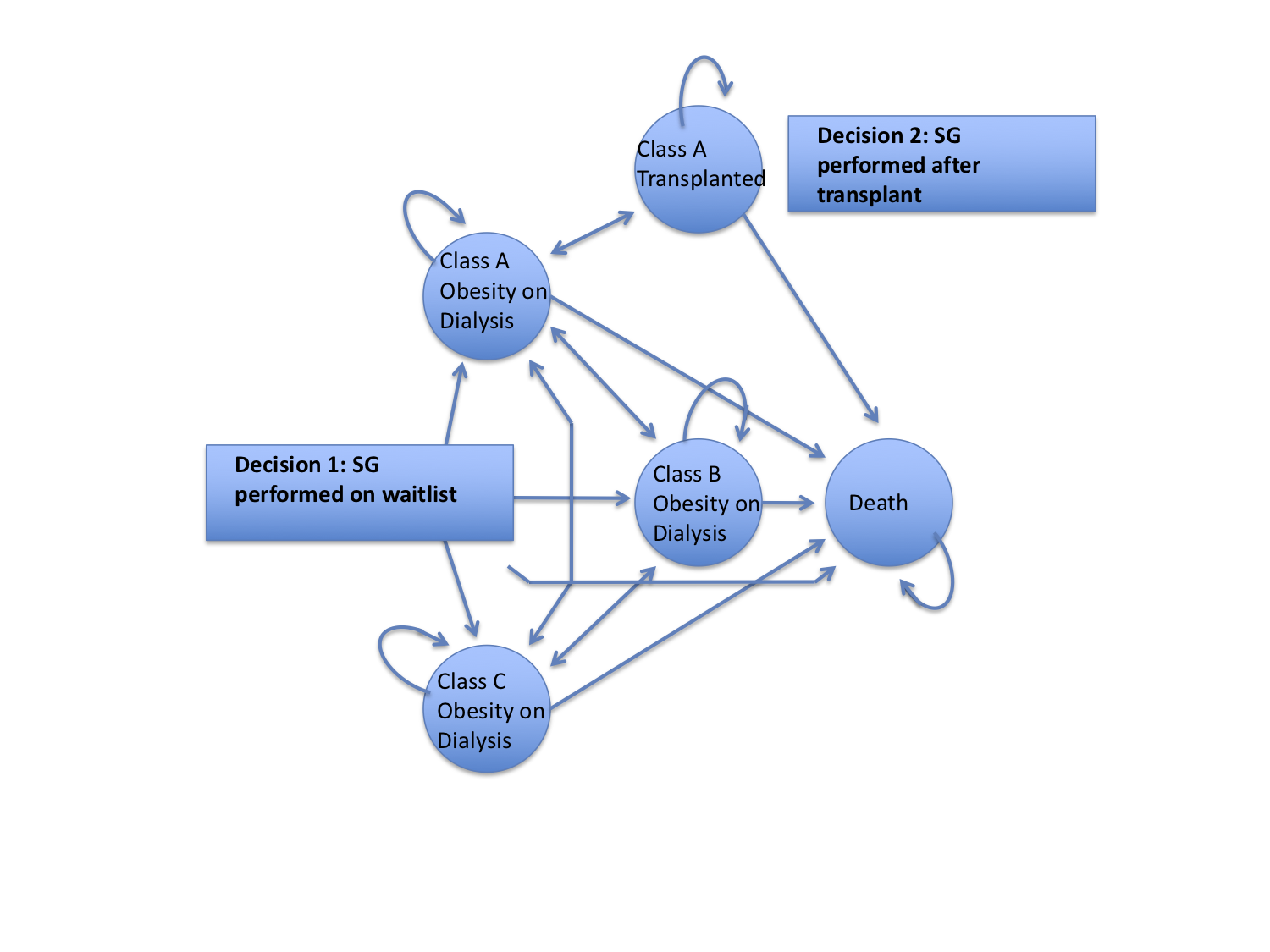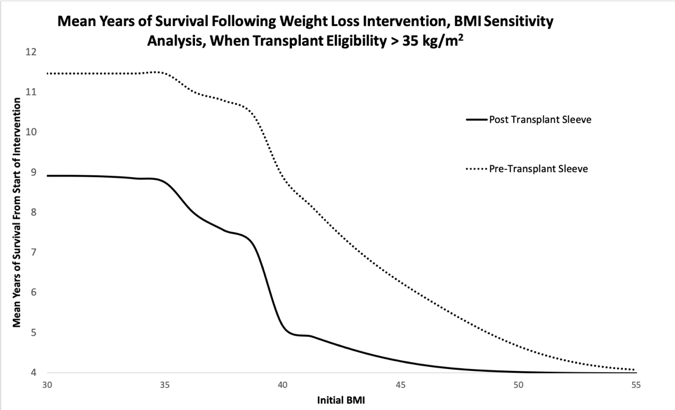Timing of Bariatric Surgery for Obese Kidney Transplant Candidates
R. A. Choudhury1, D. Yoeli1, G. Hoeltzel2, H. B. Moore1, H. Yaffe1, K. R. Dumon3, N. N. Williams3, P. L. Abt4, K. D. Conzen1, T. Pshak1, P. T. Kennealey1, T. L. Nydam1
1Department of Surgery- Division of Transplantation Surgery, University of Colorado Hospital, Aurora, CO, 2Thomas Jefferson University Hospital, Philadelphia, PA, 3Department of Surgery, University of Pennsylvania Hospital, Philadelphia, PA, 4Department of Surgery- Division of Transplantation Surgery, University of Pennsylvania Hospital, Philadelphia, PA
Meeting: 2020 American Transplant Congress
Abstract number: 130
Keywords: Kidney transplantation, Mortality, Obesity, Prediction models
Session Information
Session Name: Kidney: Cardiovascular and Metabolic Complications I
Session Type: Oral Abstract Session
Date: Saturday, May 30, 2020
Session Time: 3:15pm-4:45pm
 Presentation Time: 4:27pm-4:39pm
Presentation Time: 4:27pm-4:39pm
Location: Virtual
*Purpose: The high risk profile of bariatric surgery in obese end-stage-renal disease (ESRD) patients has caused many to suggest that surgery should be reserved for patients after successful kidney transplantation. However, it has also been advocated that bariatric surgery prior to transplant improves patient’s chances of receiving a transplant. It remains unclear how the timing of bariatric surgery impacts long term survival for obese ESRD patients seeking transplant candidacy.
*Methods: A decision analytic Markov state transition model was created to simulate the life of morbidly obese patients with ESRD who were deemed ineligible to be waitlisted for renal transplantation unless they achieved a BMI less than 35 kg/m2. Life expectancy following sleeve gastrectomy (SG) performed before waitlist placement (SG-pre) and after successful transplant (SG-post) were simulated. Base case patients were defined as having a pre-intervention BMI of 45 kg/m2. Sensitivity analysis of initial BMI was performed. Markov parameters were extracted from literature review.
*Results: SG-pre improved survival compared to SG-post after transplant across a spectrum of initial BMI. For base case patients, SG-pre patients were transplanted had a higher rate and had a mean survival of 1.9 years higher than SG-post patients.
*Conclusions: Although SG-post is associated with a lower bariatric surgery complication profile, SG-pre improves access to kidney transplantation, thereby improving long term survival for obese ESRD patients.
To cite this abstract in AMA style:
Choudhury RA, Yoeli D, Hoeltzel G, Moore HB, Yaffe H, Dumon KR, Williams NN, Abt PL, Conzen KD, Pshak T, Kennealey PT, Nydam TL. Timing of Bariatric Surgery for Obese Kidney Transplant Candidates [abstract]. Am J Transplant. 2020; 20 (suppl 3). https://atcmeetingabstracts.com/abstract/timing-of-bariatric-surgery-for-obese-kidney-transplant-candidates/. Accessed March 3, 2026.« Back to 2020 American Transplant Congress


